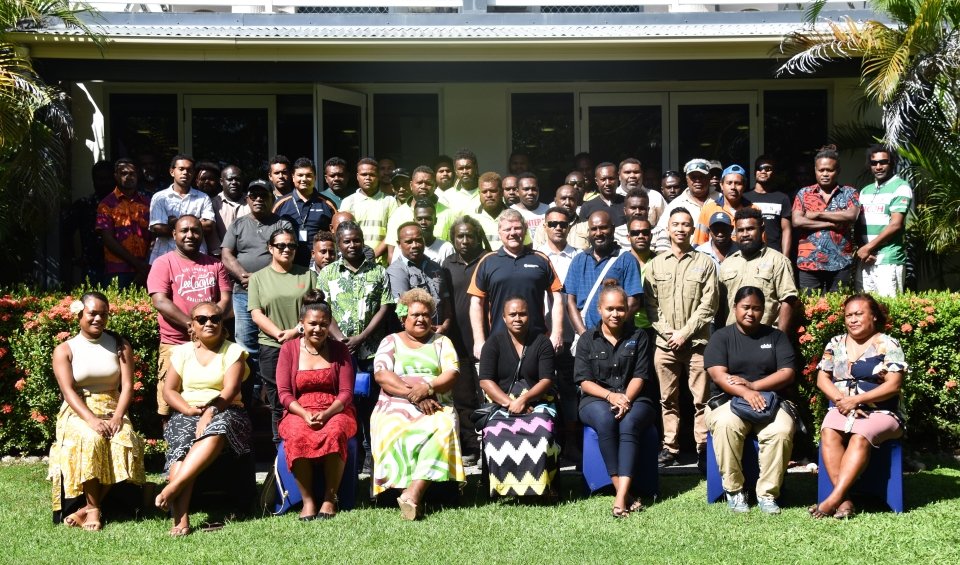
AUSTRALIA is committed to creating job opportunities for local infrastructure designers, suppliers, and construction contractors under the Solomon Islands – Australia Partnership.
At the 11th Workforce Skills Series training on Bill of Quantities (BOQ), over 60 local industry representatives learnt how to estimate project tendering costs and maintain a profitable, sustainable business.
Australian High Commissioner to Solomon Islands, His Excellency Rod Hilton, said the practical training responded to industry demand to accurately estimate costs when tendering for infrastructure projects.
“Australia understands that it’s not just about providing the lowest cost when tendering for work, but being able to cost labour and materials realistically so that businesses can sustain projects now and into the future,” Mr Hilton said.
“As Solomon Islands’ namabwan infrastructure partner, we’ve been actively supporting both the delivery of nation-building social and economic infrastructure, as well as working with government and the private sector to better plan, build and maintain high quality infrastructure assets.”
Australia has invested over SBD5 billion in infrastructure since 2019 in Solomon Islands, with over 460 projects delivered across all provinces by local companies and workers.
Over 600 participants from more than 100 local construction and supply companies have attended the free Workforce Skills Series trainings.
Mr. Larry Dione, Director at Hardknocks, a regular attendee of the workshops, acknowledged the value of the Workforce Skills Series and the training on BOQs
“With the tendering system in Solomon Islands, there are a lot of challenges. But this workshop really shows how we can integrate the project requirements of government and development partners,” he said.
Mr. Edmond Bate’e, Business Development Manager at Tropic Group Builders, said the workshops help to improve the local construction sector.
“This training is an eye opener for most of us, and it is very helpful. For us local contractors, Bill of Quantities is an important aspect in the tendering process which will enable us to submit the right prices, aim to win tenders, and be able to deliver projects on time and on budget,” he said.
High Commissioner Hilton said training would continue to respond to government and industry needs to support a high performing local private sector.
“Today’s workshop on Bill of Quantities has attracted the most interest of the 11 sessions delivered so far. We’re absolutely delighted with industry’s interest in practical, high-quality training, and we’re confident it will ultimately help them win more work, and create more local jobs in Solomon Islands.”
Bennett Pitakia, Senior Quantity Surveyor at FMC Pacific, said it was critical for industries to estimate labour and building costs for projects.
“The most important thing about bill of quantities is that it gives you a platform where you can price your job correctly in a way that enables you to complete the construction job successfully.
“Not only are you able to complete the job successfully, but you can also make a reasonable margin, and that is based on the bill of quantities as the process takes you from start to finishing the job successfully.”
“As a result, businesses or construction companies will benefit by making a reasonable margin out of it and that helps businesses to continue to grow and develop,” he said.
The next Solomon Islands Infrastructure Program workshop on Contract Management is on 29 August.